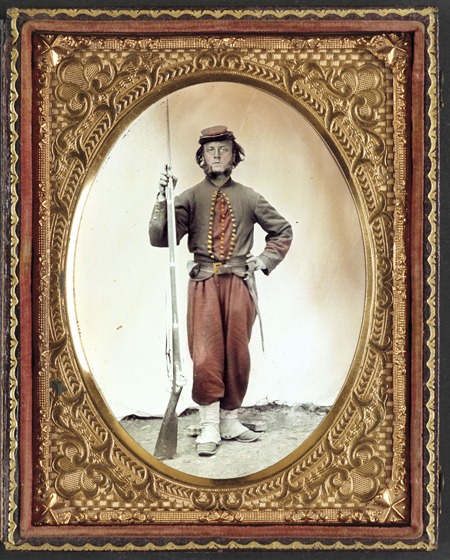Fort Craig, Va., Oct. 15, 1862.
Dear Family:
The men suffer very much from cold, having had no blankets since the advance, only what they could pick up, and nothing but the soft side of a board to sleep on; but I sleep as well as at home, having nearly all the conveniences of that place.
You think I had better “stop in camp than go out roaming around the country”? Well the fact is, a fellow gets tired of laying round, and another reason is, I want to see the country; it is different from that in Mass., being hills and valleys everywhere. I should like to go to a meeting where there is some kind of a man going to speak; have not heard one since being out here and fear that I am no better on account of it, although but little good our Chaplain would or could do. As for the country being ruined, I think it will get along as well as usual for some time to come. Our men can fight as well as the southerners; but no better. They have got good fighting blood and are as smart as we; but it is supposed we outnumber them; still, don’t know. They have held their own with us so far and should not be surprised if they did to the end. The Capt. has got his papers at last. Shall not expect a box, now the Capt. has gone, till Thanksgiving.
I suppose Frank has got to be quite an old man by this time and thinks he is boss.
About those photographs; we can get fine ones taken over in the city. Which would you rather have, the whole body or the bust? I think the latter for me, as they say I am a tall gawky looking fellow. The report here is now that we have got to go to California; that there is a large fleet off that coast and they want us out there. I should like to go as I could get out free of cost. Do you suppose you could get any pay from the state, on Jere and myself? Seems as though you might, other families do. I will draw up something if you think best and get Lt. H. to sign it and see if that will do. Write if you think best or not. The old members of Co. B are determined that if they get home they will draw a town meeting and vote to give us bounty ($300) and I have no doubt they ‘d get the vote.
Much love to all. Give respects to all inquiring friends.
Yours,
L. B.. Jr.
Oct. 16. I am just out of bed and am going to add a few lines. The new troops are drilling and they have to drill like good ones too. Sitting here at the door of the tent, I get a view of the Potomac. If the Capt. should go home, if you look in his trunk and get the picture of a young lady, keep it for me. It is a Virginia lass.











